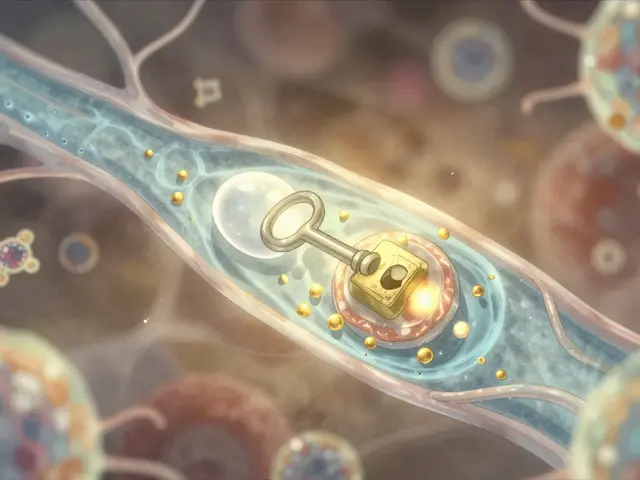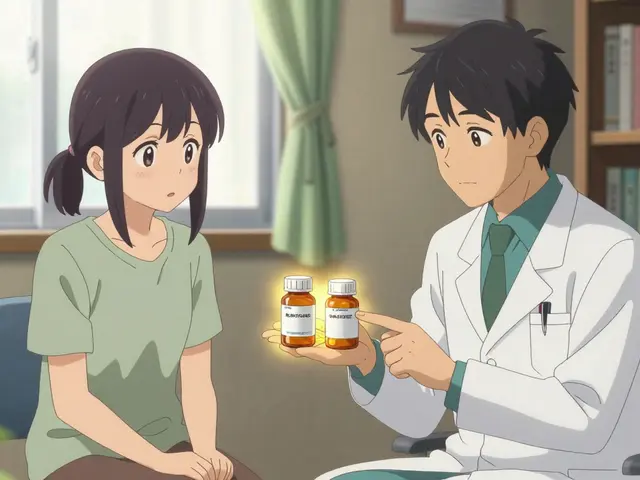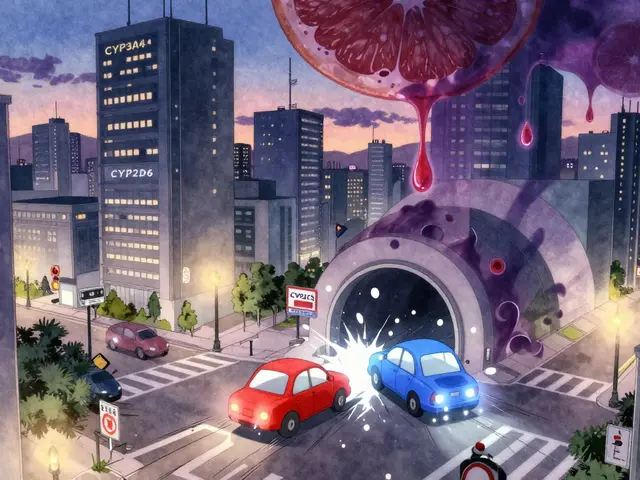SSRI Cravings – What They Are and Why They Occur
If you’re on an SSRI (a common antidepressant) you might notice new cravings for sweets, carbs, or even nicotine. It feels odd – you’re trying to feel better, but suddenly you want that extra piece of chocolate. Those cravings are real, and they happen because SSRIs change how serotonin works in your brain, which can also affect hunger signals and reward pathways.
Serotonin isn’t just about mood; it helps regulate appetite too. When you boost serotonin with an SSRI, the balance between serotonin and dopamine can shift. Dopamine is the chemical that drives pleasure and reward. The shift sometimes makes the brain ask for more quick‑hit foods or other rewarding substances to fill the gap.
Common Types of Cravings on SSRIs
Most people report a sweet tooth – cookies, candy, pastries. Sugary foods give a fast rise in blood sugar, which can temporarily lift mood. Some notice salty cravings, like chips or pretzels, because salt can also stimulate dopamine release. A smaller group feels a pull toward caffeine or nicotine, especially if they used those before starting the medication.
It’s not just food. Some experience a craving for more sleep or for extra rest. That’s the brain’s way of saying it needs more recovery time while it adjusts to the new serotonin levels. Recognizing the pattern helps you plan better instead of feeling out of control.
Practical Tips to Reduce Cravings
1. Schedule regular meals. Eating balanced meals every 3‑4 hours keeps blood sugar steady, which makes sweet cravings less intense. Include protein, healthy fats, and fiber in each bite.
2. Swap smart. When a craving hits, reach for fruit, yogurt, or a handful of nuts instead of candy. The natural sugar in fruit satisfies the sweet urge without the crash.
3. Stay hydrated. Thirst can masquerade as hunger. Drinking a glass of water before a snack often reduces the desire to overeat.
4. Exercise lightly. A short walk or some gentle stretching releases dopamine naturally, which can curb the need for sugary rewards.
5. Talk to your prescriber. If cravings are strong enough to affect your weight or health, your doctor might adjust the dose or try a different antidepressant. Never stop medication on your own.
6. Mindful eating. Take a moment to notice the taste, texture, and how full you feel. Mindfulness slows down the eating process and often leads to consuming less.
7. Plan indulgences. It’s okay to have a treat once a week. Scheduling it prevents random binge‑eating and gives you something to look forward to.
Remember, cravings are a side effect, not a failure. They signal that your brain is still finding its balance. With the right habits and open communication with your healthcare provider, you can keep them in check and stay on track with your mental‑health goals.
Bottom line: SSRI cravings can be managed. Eat regularly, choose smarter snacks, stay active, stay hydrated, and keep your doctor in the loop. You’ll feel more in control and keep moving toward better mood and stability.

Escitalopram and Blood Sugar: Unraveling the Link with Sugar Cravings
- By : Archer Hamilton
- Date : May 21 2025
Does escitalopram (Lexapro) mess with your blood sugar and spark cravings for sweets and carbs? This article dives into the latest small studies and reviews, exploring how SSRIs might nudge your glucose levels and influence what you reach for in the fridge. Expect real data, clear tips, and some surprise links between your mood meds and what’s on your plate.





